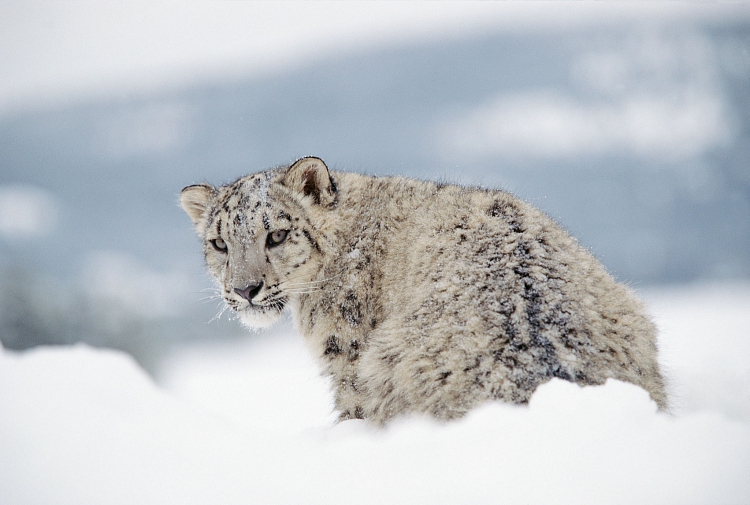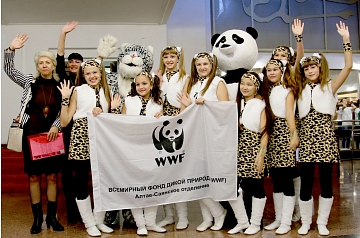WWF: snow leopards are endangered due to climate changes
 On October 23, International Snow Leopard Day, WWF is publishing its report concerning one of the most understudied pantherine cats’ population. The main threats for the species are climate change and poaching.
On October 23, International Snow Leopard Day, WWF is publishing its report concerning one of the most understudied pantherine cats’ population. The main threats for the species are climate change and poaching.
“Fragile Connections: Snow Leopard, Human Beings, Water Resources and Climate Changes” report data are quite disappointing: more than a third of snow leopard’s range is subjected to the negative effects of climate changes. The shifts of altitudinal zones allow cattle-farmers to move uphill forcing the rare carnivores out of their natural habitat.
As the WWF report states, there are no more than 14% of snow leopards’ inhabitation sites studied. Nonetheless, it is fair to say that there are less than 4000 snow leopards living in the mountains of Central Asia, and their population is decreasing.
The snow leopards’ population has experienced a 20% drop over the last 16 years.
“Urgent measures to snow leopards’ inhabitation sites conservation should necessarily be taken, otherwise the “mountains spirit” will just disappear in the same manner as the water resources, vital for the locals, already do,” says Rishi Kumar Sharma, WWF Snow Leopard Conservation Program coordinator.
According to experts, the main threat for snow leopard in Russia is poaching.
“In comparison with Central Asia and Mongolia, the climate changes in Altai region have not reached the critical level for snow leopard yet,” points Oksana Lipka, WWF-Russia Climate and Energy Project coordinator.
Although the snow leopard’s population is decreasing all over the world, it has been stabilized at the level of 70–90 animal units (around 2% of the global population). As head of WWF Altai-Sayan Branch Natalia Trofimova says, in Russia the struggle against illegal snow leopards poaching capture and ungulates hunt in snow leopard’s inhabitation sites, the reduction of the number of conflicts between cattle-farmers and carnivores are the top-priority focus areas.
The Faculty of Biology always supports WWF. Its volunteer-students and Under the Open Sky eco-club members have enthusiastically conducted the Snow Leopard Supporting Campaign.

“There has already been created around 8.5 m ha of protected area. As a result of anti-poaching activities the number of hunting gears in the main snow leopard’s habitats has been decreased by more than 20%. Besides, carnivores’ attacks on cattle have also been reduced due to cooperation with cattle-farmers,” says N. Trofimova.
The territory of WWF-Russia Snow Leopard Conservation Projects conduction is not only Altai, but also Kyrgyzstan.
“Great attention in this region is paid to the development of alternative income sources for local population. Residents of high-mountain settlements will not be getting their income from poaching, but from struggling against it,” states WWF-Russia Central Asian Program coordinator Olga Pereladova.